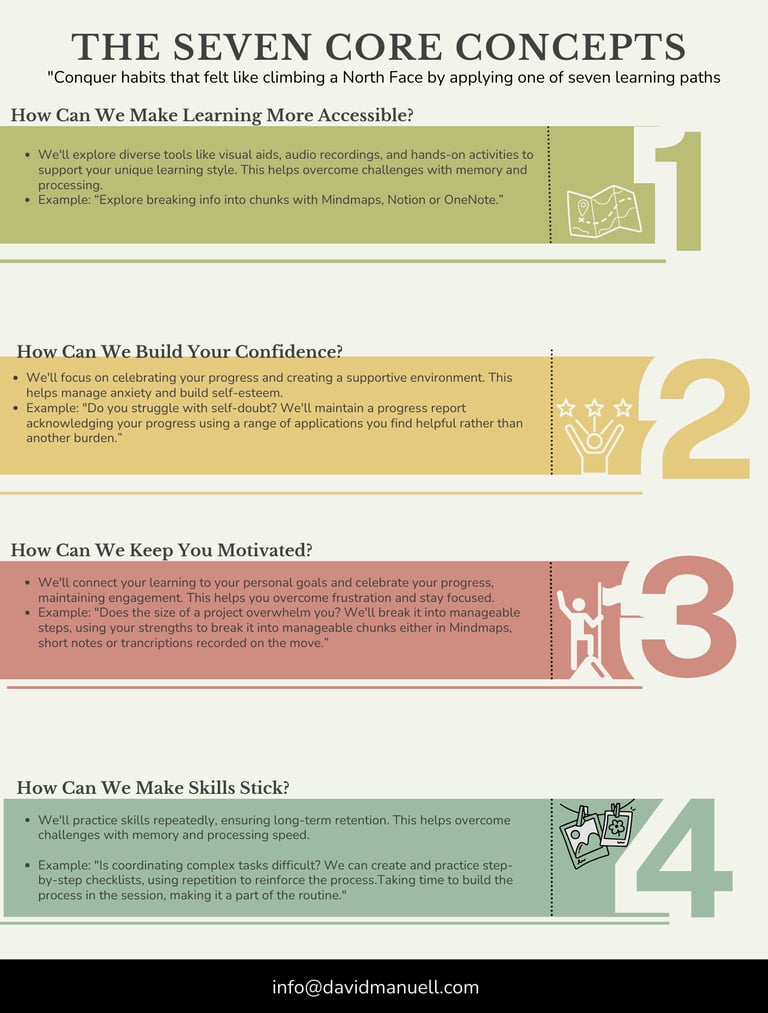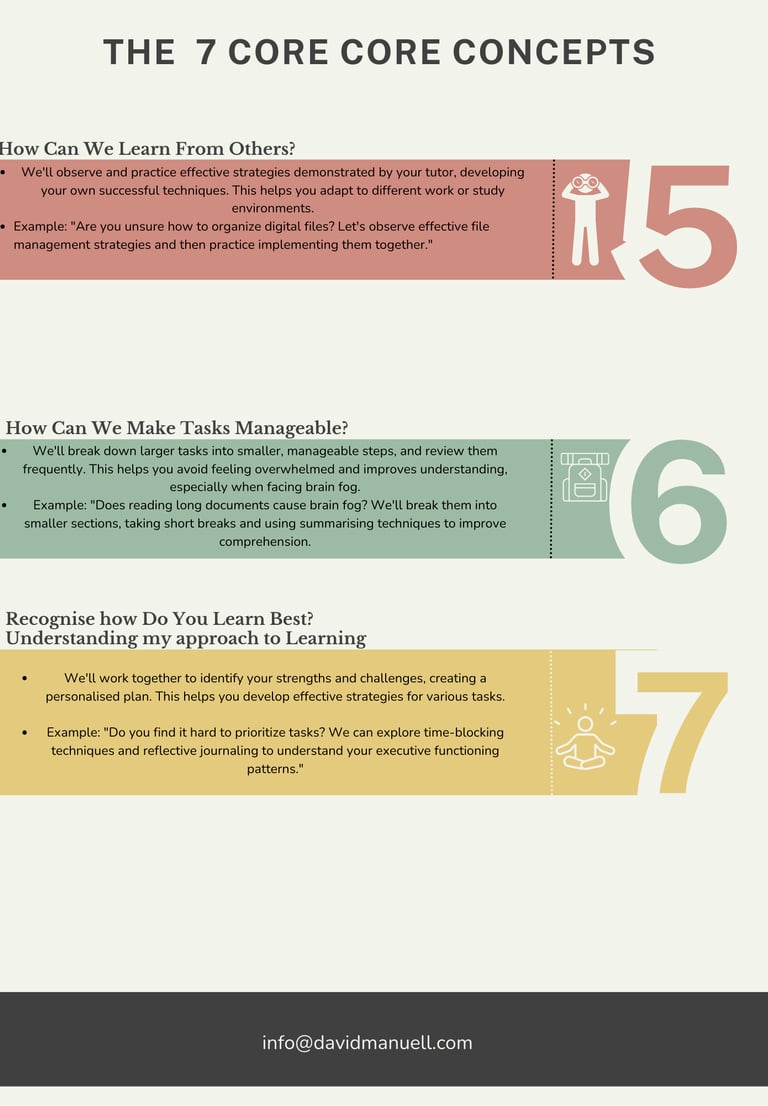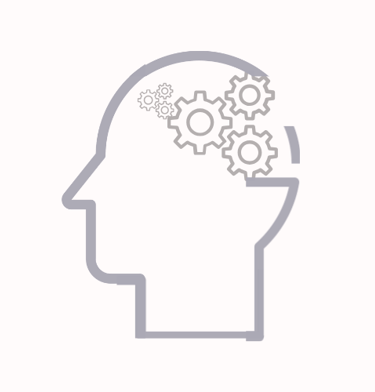O2
worker






1.How Can We Make Learning More Accessible?
We'll explore diverse tools like visual aids, audio recordings, and hands-on activities to support your unique learning style. This helps overcome challenges with memory and processing.
13:52
Example: "Explore breaking info into chunks with Mindmaps • Notion • OneNote."
2.How Can We Build Your Confidence?
We'll focus on celebrating your progress and creating a supportive environment. This helps manage anxiety and build self-esteem.
Example: "Do you struggle with self-doubt? We'll maintain a progress report acknowledging your progress using a range of applications you find helpful rather than another burden."
3.How Can We Keep You Motivated?
We'll connect your learning to your personal goals and celebrate your progress, maintaining engagement. This helps you overcome frustration and stay focused.
Example: "Does the size of a project overwhelm you? We'll break it into manageable steps, using your strengths to break it into manageable chunks either in Mindmaps • short notes • transcriptions recorded on the move."
"Turn your North Face into stepping stones - learn and apply seven concepts that work for you."
4.How Can We Make Skills Stick?
We'll practice skills repeatedly, ensuring long-term retention. This helps overcome challenges with memory and processing speed.
Example: "Is coordinating complex tasks difficult? We can create and practice step-by-step checklists, using repetition to reinforce the process. Taking time to build the process in the session, making it a part of the routine."
5.How Can We Learn From Others?
We'll observe and practice effective strategies demonstrated by your tutor, developing your own successful techniques. This helps you adapt to different work or study environments.
Example: "Are you unsure how to organize digital files? Let's observe effective file management strategies and then practice implementing them together."
6.How Can We Make Tasks Manageable?
We'll break down larger tasks into smaller, manageable steps, and review them frequently. This helps you avoid feeling overwhelmed and improves understanding, especially when facing brain fog.
Example: "Does reading long documents cause brain fog? We'll break them into smaller sections • short breaks • summarising techniques to improve comprehension."
7.Recognise How Do You Learn Best?
Understanding My Approach to Learning
We'll work together to identify your strengths and challenges, creating a personalised plan. This helps you develop effective strategies for various tasks.
Example: "Do you find it hard to prioritise tasks? We can explore time-blocking techniques • reflective journaling to understand your executive functioning patterns."
